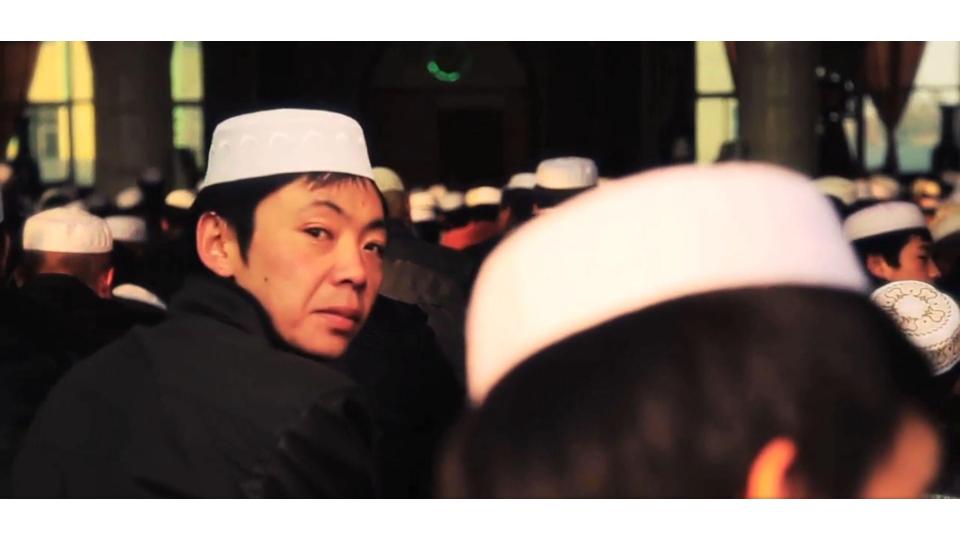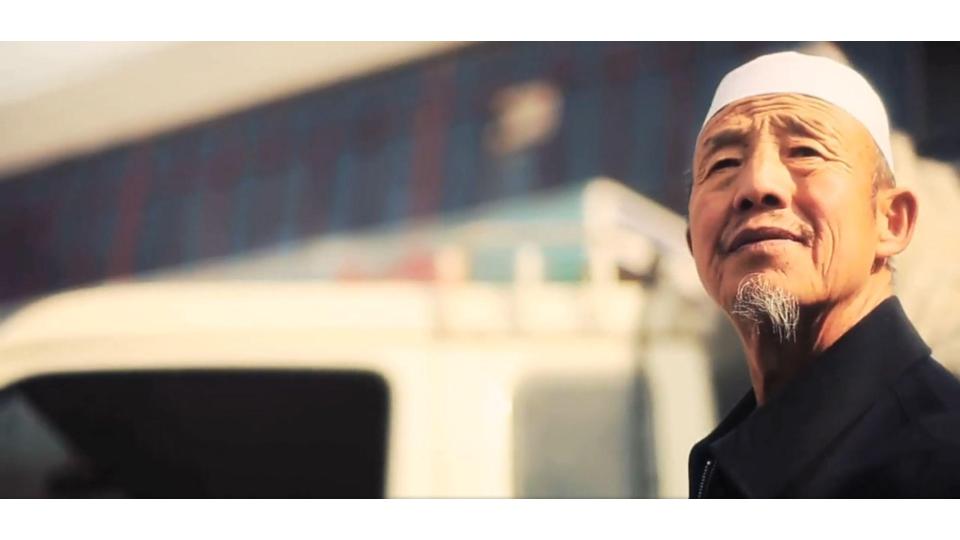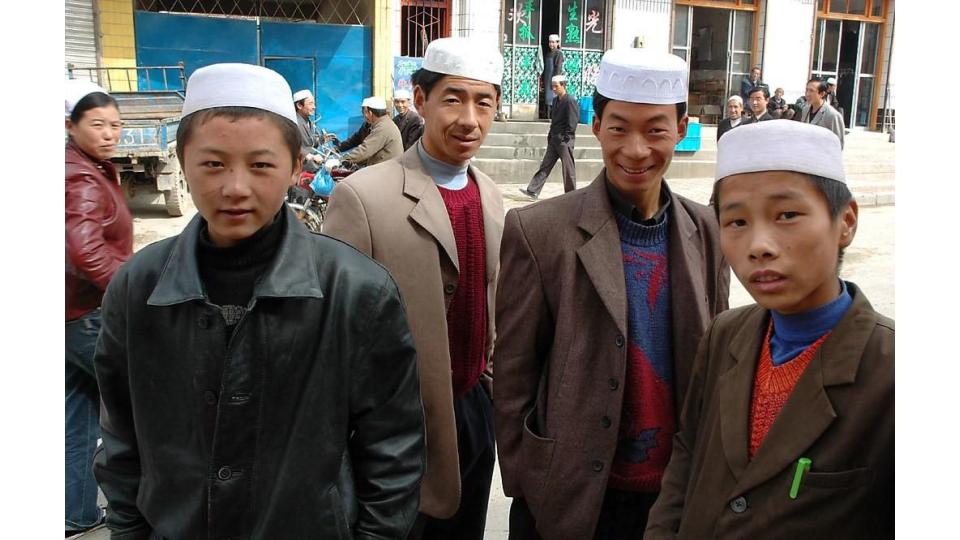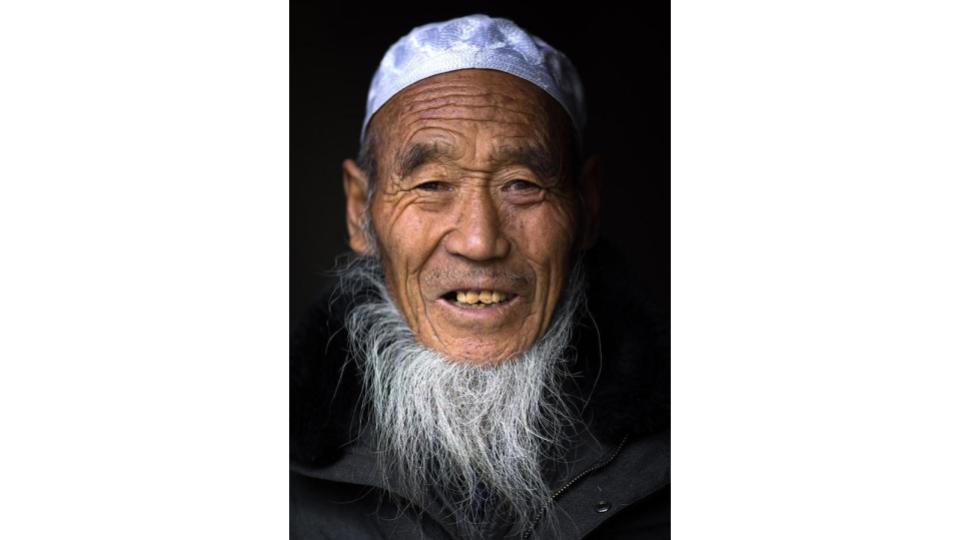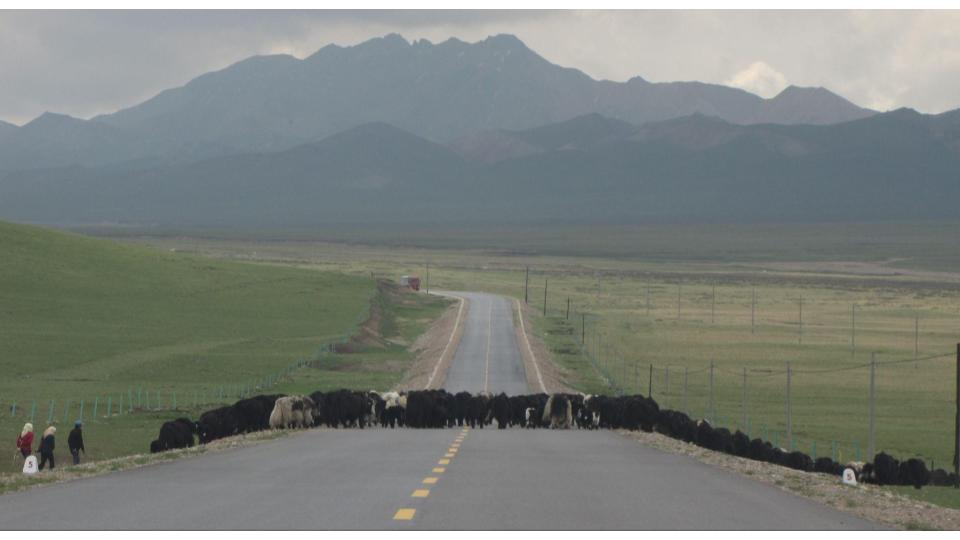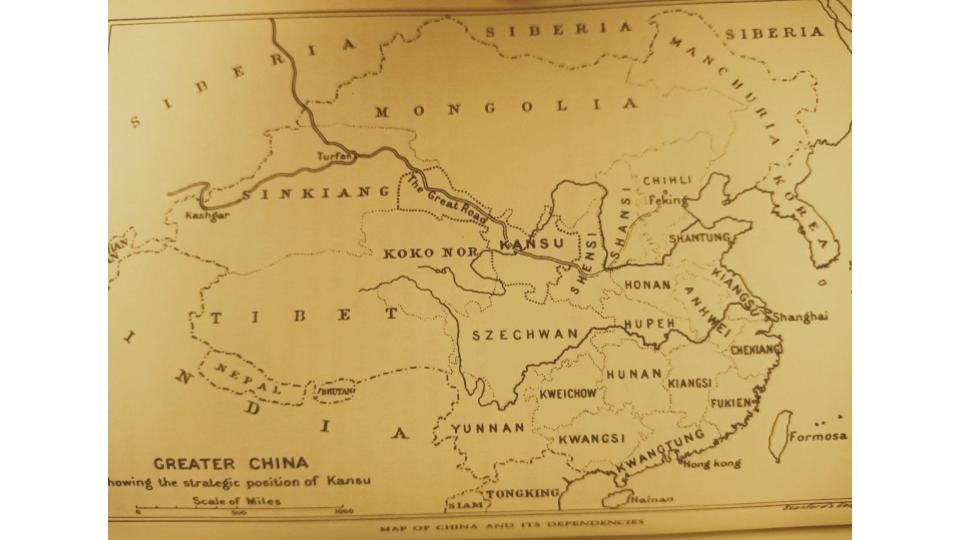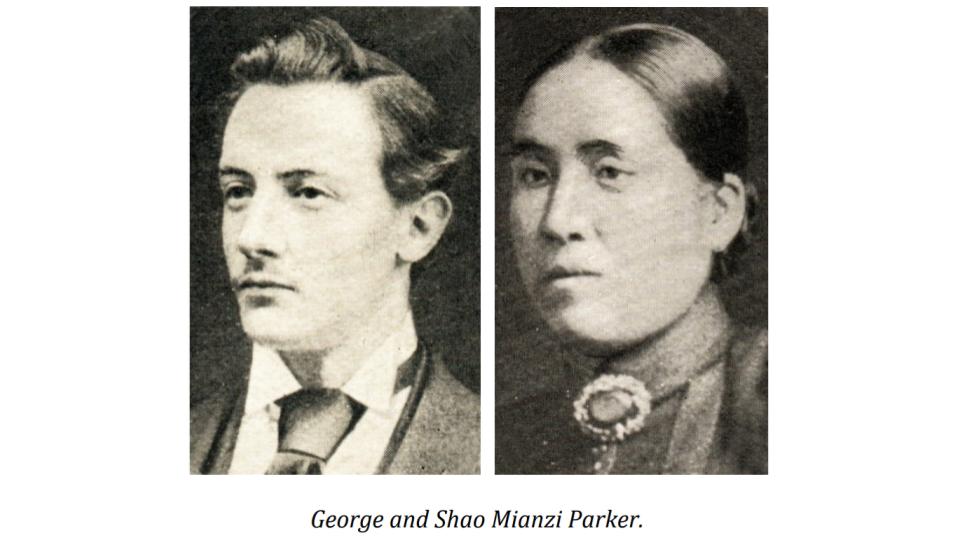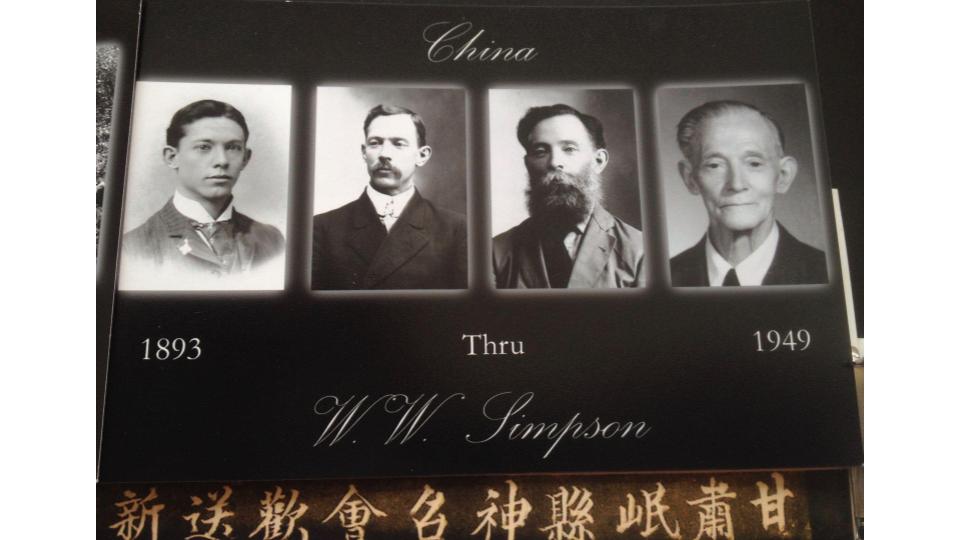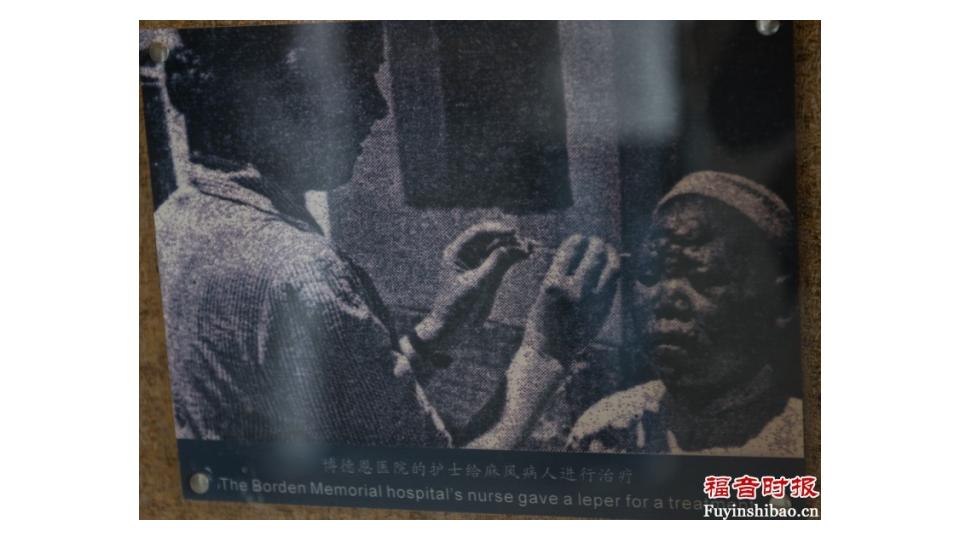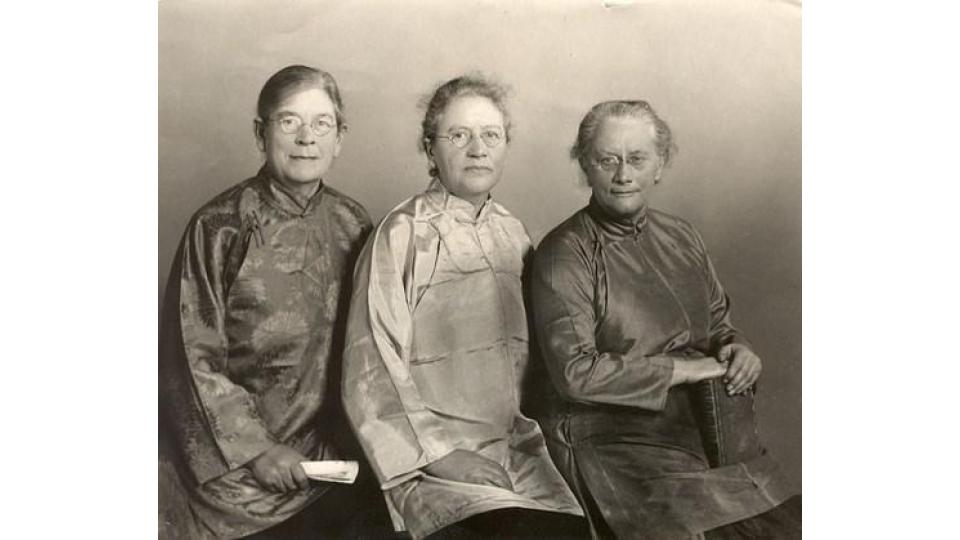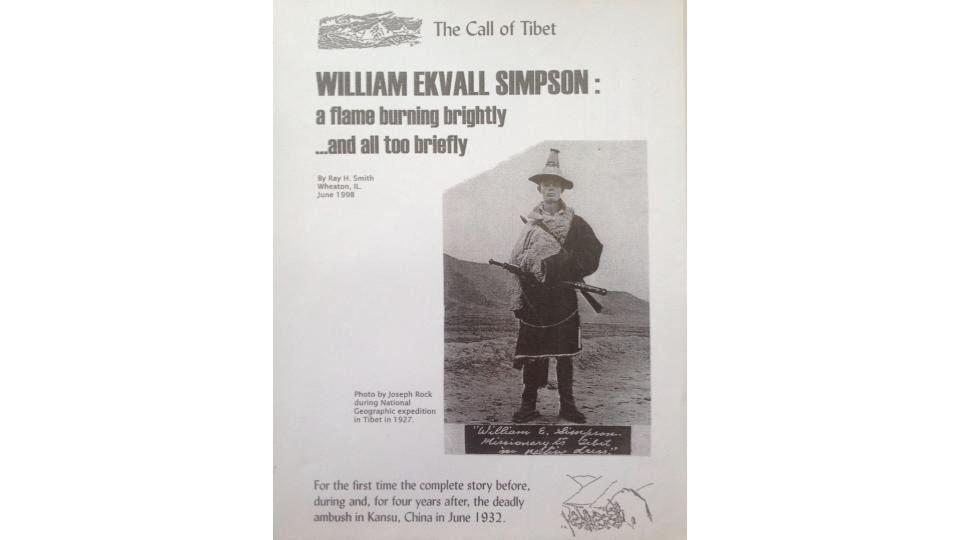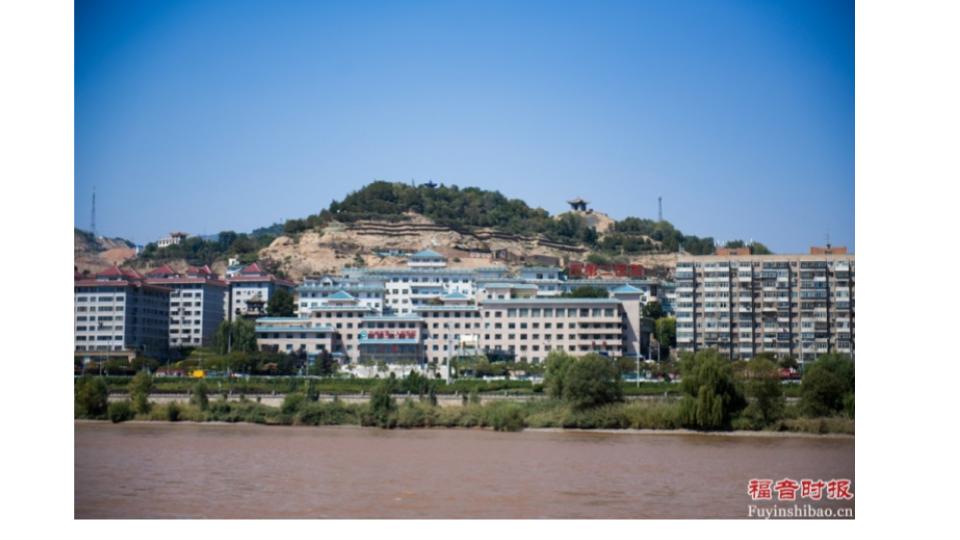
William Borden, born in 1887 to a millionaire family,
was given a round-the-world trip as a graduation gift at the age of 16. Sounds like the intro to a bad reality show!
Spanning 1904-1905, the trip began in San Francisco, and he spent considerable time in Japan, China, Malaysia, India, Egypt, Palestine, and much of Europe. He was shocked by the idolatry and heathenism that he witnessed, but the Lord seemed to put missionaries in his path, and he spent much of the year learning and interacting with them in their various fields of service.
He commented in a letter home: “You can learn more from a missionary in half an hour than you can pick up yourself in a couple of months of travel.”
He also wrote the following to his mother, just a month or so into his journey:
“I met such pleasant young people on the steamer who were going out as missionaries, and meeting them influenced me…While talking with them [I] learn of the work and the opportunities..so that I realize things as I never did before. When I look ahead a few years it seems as though the only thing to do is to prepare for the foreign field.” (Borden of Yale, 47-48)
And in a different letter, after having spent considerable time exploring both China and India:
“I have so much of everything in this life, and there are so many millions who have nothing and live in darkness! I don’t think it is possible to realize it until one sees the East. I know it is no easy thing to serve the Lord (as a missionary), but others have been enabled to do so, and there is no reason why I should not.” (Borden of Yale, 70)” (Borden of Yale, 47-48)
Back to School
Upon returning home, he commenced his studies at Yale. Sometime during his freshman year, he traveled to a missionary conference in Nashville and heard about the great Gospel need among the world’s hundreds of millions of Muslims. Dr. Samuel Zwemer, the great missionary to the Arab world and “Apostle to Islam”, had an impact on Borden.
Zwemer was the:
“man with a map. Charged with..enthusiasm, grim with earnestness, filled with a passion of love for Christ and the perishing..[he] made that great map live, voicing the silent appeal of the [Muslim] world. [Hundreds of millions] under the sway of Islam…what a challenge to the Christian church! … Yet, as.. Zwemer showed, never before had there been such open doors for the evangelization of the Muslim world. ‘The hour is ripe’ was the burden of his message…”
Borden went home feeling especially burdened to reach Muslims, particularly in the remote province of Gansu in northwest China. And he never wavered from that calling.
Borden of Yale
But Borden’s call to the far-flung field of Gansu didn’t excuse him from serving faithfully in his homeland. He left a legacy at Yale that is unprecedented. What began as a prayer meeting with a handful of friends ended up impacting the entire university. One of the original group wrote:
“[He] and I began to pray together in the morning before breakfast..We had been meeting only a short time when a third..joined us and soon after a fourth..The time was spent in prayer after a brief reading of Scripture. Our object was to pray for the religious work of the class and college, and also for those of our friends we were seeking to bring to Christ.” (Borden of Yale, 97)
The pre-breakfast prayer meetings soon spread. By the end of Borden’s sophomore year there were many similar groups in each of the classes.“It was not passed down from the seniors to the juniors, but came up from the freshman.” (Borden of Yale, 97)
“How easy [he] was to pray with! He could be jolly with the rest, and when the crowd was gone it would be just as natural for him to say, ‘Come..[let’s pray together].’ There was no sense of incongruity about it. [He] was so simple in his prayer life, so natural, so trustful! He was the easiest man to pray with I have ever known.” (Borden of Yale, 145)
But they didn’t just pray. They actively shared the Gospel with their unconverted classmates:
“Bill was always picking out the toughest proposition and going through thick and thin to win him for Christ.” (Borden of Yale, 98)
No Reserve
During his undergrad years at Yale, he helped found Yale Hope Mission, where he would often be found personally ministering to the poor drunks and outcasts and teaching the Bible.
According to one well-traveled visitor, when asked what had most impressed him about America, is said to have replied, “The sight of that young millionaire kneeling with his arm around a ‘bum’ in the Yale Hope Mission.”
While in seminary, William donated at least $70,000 (nearly $20 million worth today) to all various Bible societies and Gospel causes, most of which we will never know, since he made every effort to do so in secret. According to his friend, Charlie Campbell:
“His best friends never knew even a small percentage of the gifts he was making…[his] checkbooks show how little he spent for himself and how much he was doing for others.”
But he didn’t just give his money. His millionaire father passed away when he was 18 and still a student at Yale, and he took oversight of his families’ assets.
As a seminary student (early 20s), he sat on the board of numerous Bible and Missionary societies, including the China Inland Mission with whom he planned to serve in Gansu, China.
According to his biographer: “The unusual feature of his relationship to all such organizations was that he was never satisfied with merely giving generous financial aid. In addition, he always gave time, thought and counsel.” (Borden of Yale, 176)
No Retreat
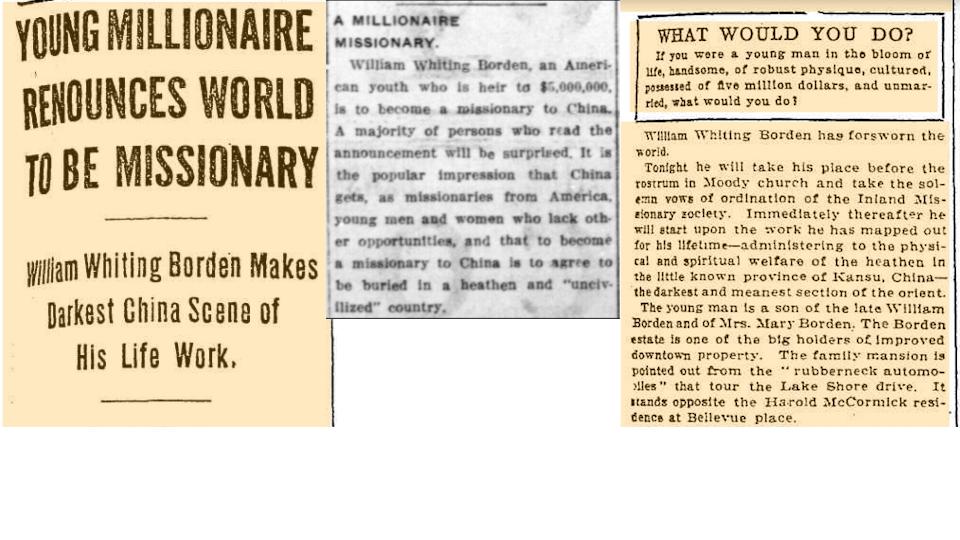
After graduating from Yale in 1909, and Princeton Theological Seminary (1912), his commitment to the mission field didn’t waver, even in the face of intense pressure by some to take advantage of his education and assets back home, instead of “wasting it” in western China. One friend expressed surprise that he was “throwing himself away as a missionary”. Borden’s reply?
“You have not seen heathenism.”
College Tour
But in the months prior to his departure, he made a three month speaking tour of nearly thirty colleges and seminaries, seeking to recruit even more missionaries for the Muslim world and telling everyone about the Gansu field he so longed to reach. He would speak of:
Two features marked Gansu. The first was its diversity. The second was its inaccessability:
[T]he Great (Silk) Road [ran] through [Gansu] — a thousand miles from east to west — on across the Gobi Desert..linking city after city in which no missionary had ever laboured..one of the most neglected [fields] in the world. [Oh, how it drew him,] because so few were willing to lay down their lives that [they], too, might have the message of Redeeming Love!”(Borden of Yale, 214)
Are you steering or drifting?
“If ten men are carrying a log, nine of them on the little end and one at the heavy end, and you want to help, which end will you lift on?” (In proportion to the population, there were 500 times as many ordained ministers in the USA than in China.)
Are you willing to be made willing?
Borden’s words were all the more convicting because he was personally willing to pay the price.
Cairo for Christ
Borden set sail for China (via Egypt) on December 17, 1912, planning to spend a few months studying Arabic in preparation for future labors among Chinese Muslims:
“It was felt that a few months at Cairo, in the language school, would be of advantage, not only for the study of Arabic and the Koran but of [Islam] generally, before attempting to meet it in its strongholds in Western China.”(Borden of Yale, 208)
But he wasn’t content to merely study in Cairo. He dove into the work there, alongside both local missionaries and native believers! In this, he was a kindred soul. (Tracts, Language)
No Regrets
In late March of 1913, on Easter weekend, Borden was hospitalized with what was thought to be cerebral meningitis, a relatively common yet often deadly illness common to much of Africa. Telegrams were sent around the world requesting prayer for his recovery, and countless friends and colleagues began lifting him up to God.
Borden’s mother, who was already en route for a visit (along with Borden’s younger sister), had no idea he was ill until they reached Gibraltar, the gateway to the Mediterranean Sea.
They were met by Dr. Zwemer himself at port on the Suez Canal, and set off straightway by train for the hospital in Cairo. About halfway into the journey, a message arrived saying that William was not well. Dr. Zwemer told them not to worry too much, however, as he had been up down often during those weeks.
But another message soon followed, delivered right to their train car. William had just passed away, and only a couple of hours before their arrival. Can you imagine?
His mother later commented that, upon seeing him from across the room that day (they encouraged her not to get too close for fear of contagion):
“I should never have known (recognized) him, his beard and moustache had grown and the contour of his face was changed.”
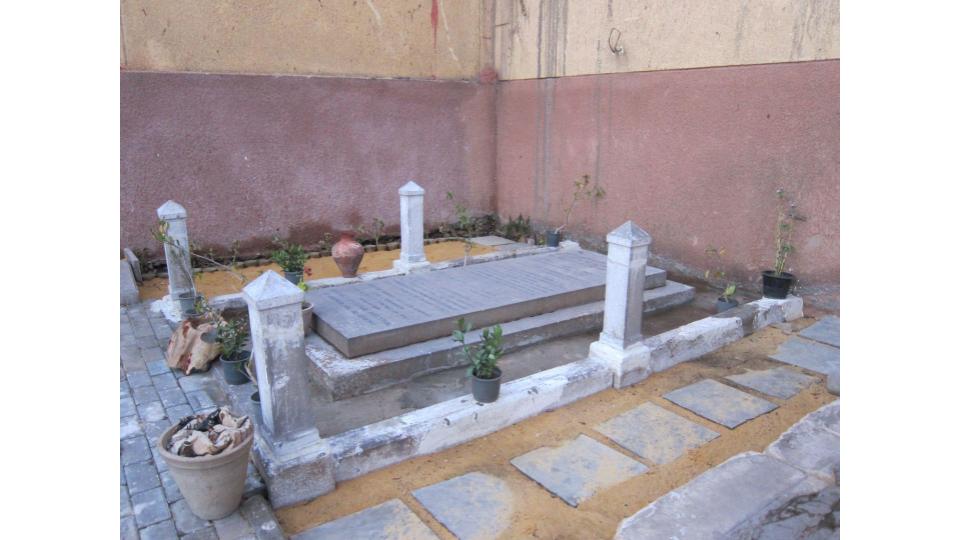
This stood out to me since I had imagined him handsomely dressed and perpetually clean-shaven, as all the pictures I have seen of him show)
William Borden’s death shocked the whole world (not just the missionary world).

His life being cut off en route to the Gansu mission field was incomprehensible to many, and he was even slandered in the media of his day (what’s new?).
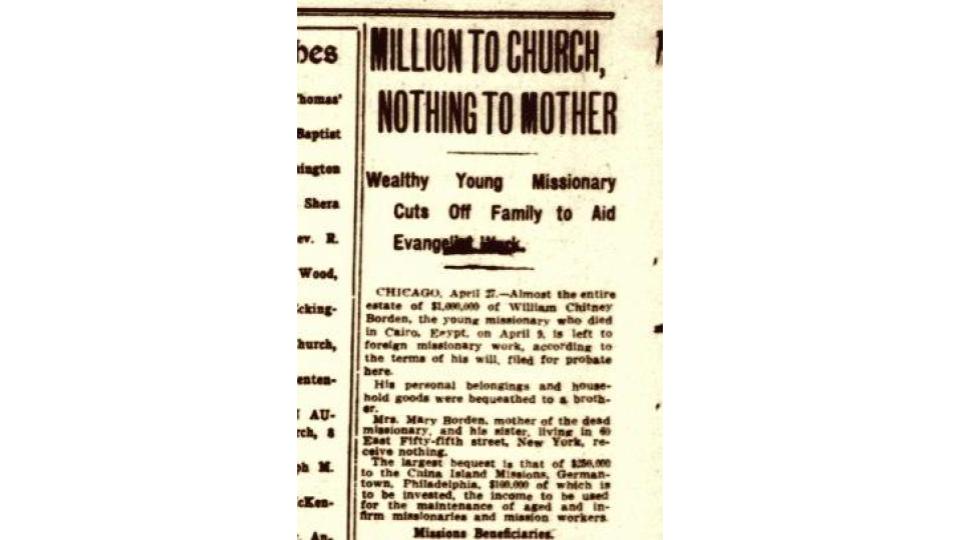
Was he a modern day Enoch? Or was the seed of his life always meant to bear more fruit in his death?
If so, then even in death he resembled his Lord. But there is no doubt his public death gave wings to his testimony.
No Reserve. No Retreat. No Regrets.

These powerful words have long been said to have been scribbled on the inside of Borden’s Bible, but in actuality were likely just a turn of phrase by his biographer, Mrs. Howard Taylor:
“No reserve, no retreat, no regrets had any place in Borden’s consecration to God.” (Borden of Yale, 260)
Turning the corner here, had you ever heard of Gansu before today?
Borden was neither the first nor the last to target Gansu province:
– In 1876, George Parker and his Chinese wife Minnie became the first protestant missionaries to target Gansu Province, serving under Hudson Taylor’s China Inland Mission
– In 1892, CMA/AG missionary William Wallace Simpson arrived in China, basing his fruitful 50+ year church-planting ministry in the mountains of southern Gansu.
– In 1918, the China Inland Mission opened the Borden Memorial Hospital in Gansu, funded by him in his death. The “Gospel Hospital” specialized in infectious diseases, especially leprosy.
– In 1923, single missionaries Mildred Cable and her companions Francesca and Eva French began a decade+ of evangelistic expeditions through the vast expanses of Gansu’s Gobi Desert
– In 1932, 30 yr old William Ekvall Simpson (son of WW Simpson) was shot by Muslim bandits. He pioneered a mission next to Labrang Monastery in SW Gansu, where we lived from 07-09.
– In 1949, Communism prevailed in China and most missionaries were expelled.
– Borden Memorial Hospital continued to serve the poor Muslims and Tibetans of Gansu until 1951. The hospital is still open today, although now run by the Chinese, but there is still a small museum dedicated to its history. A small house church still meets on the hospital campus.
The 50s, 60s, and 70s were the dark ages in China, in which unspeakable things occurred. Read up about the “Great Leap Forward” and the “Cultural Revolution” if you dare. But the 80s brought an opening up, a thawing of relations between China and the rest of the world.
Okie Governor in Gansu, China
-In 1985, Oklahoma Governor George Nigh and his wife visited Gansu Province, planting a “Friendship Tree” in a park in the capital city of Lanzhou, and signing a “Sister State” Friendship Accord with Gansu’s Governor that has now been active for 37 years!
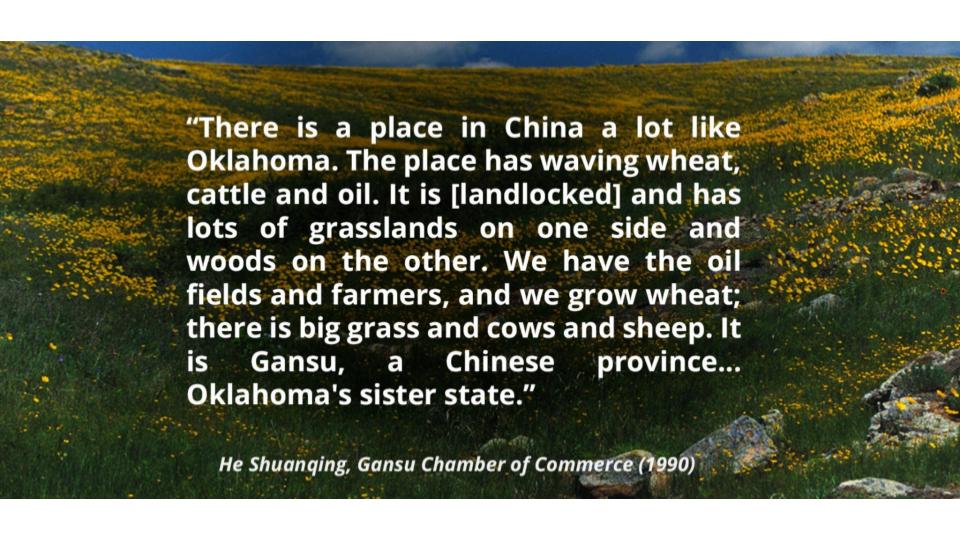
– In 1990, a Gansu delegation visited the Oklahoma State Fair, and He Shuanqing, of the Gansu Chamber of Commerce, had this to say:
“There is a place in China a lot like Oklahoma. The place has waving wheat, cattle and oil. It is [landlocked] and has lots of grasslands on one side and woods on the other. We have the oil fields and farmers, and we grow wheat; there is big grass and cows and sheep. It is Gansu, a Chinese province. For five years now Gansu has been Oklahoma’s sister state.”
Late to the Party
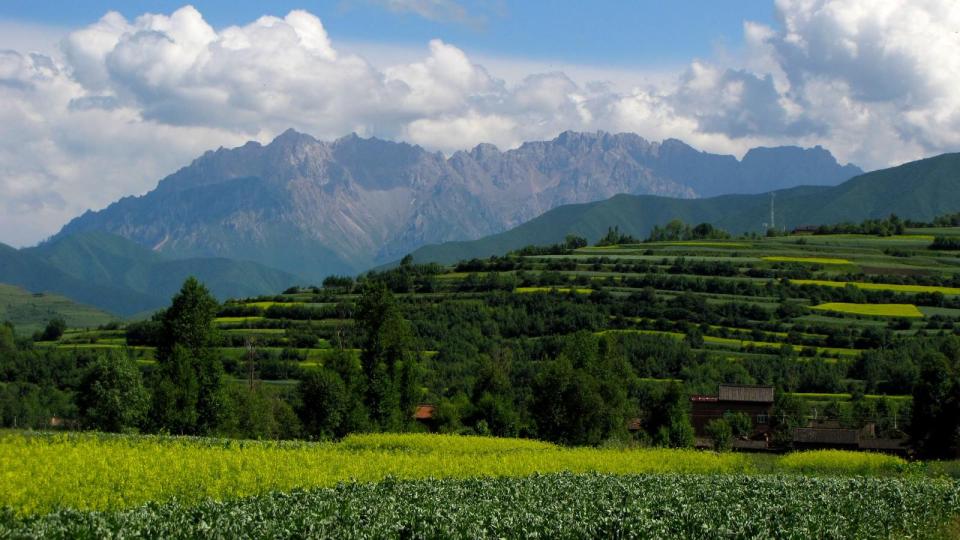
In 2003, I visited Gansu for the first time, spending weeks criss-crossing the region, praying, learning Chinese, and sharing the Gospel. While walking the streets of the Muslim city of Linxia, the same region that Borden had set out to reach, I said to myself: “I believe I could live here.”
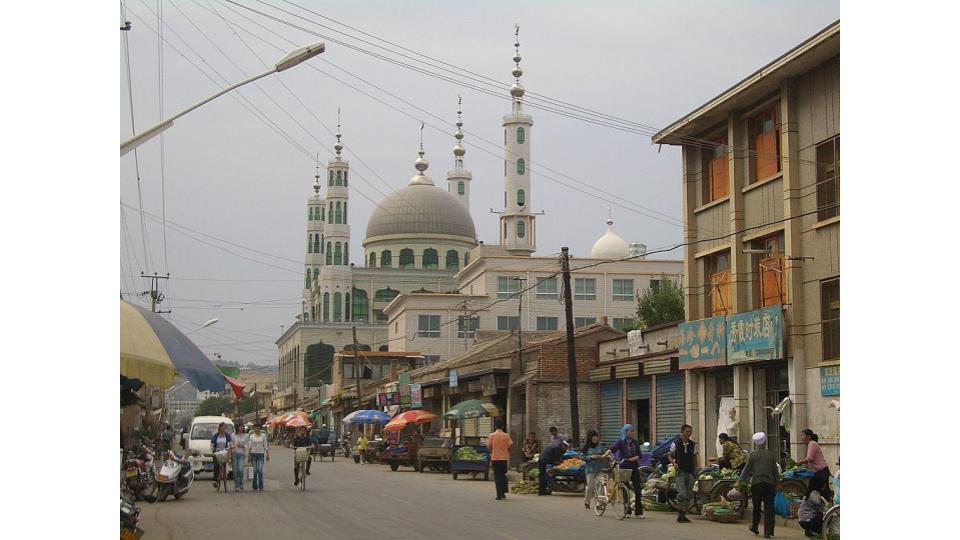
– By early 2005, less than two years later, my wife and I were living there. Two of our kids were born in Gansu, the oldest in the Muslim city Borden had most longed to reach.
– In 2008, my mom sent me an article from the Daily Oklahoman about the Sister State relationship that had begun 23 years earlier. I was sitting in our home in Gansu at the time, and I nearly fell out of my chair. It was the first time I had heard of the connection!
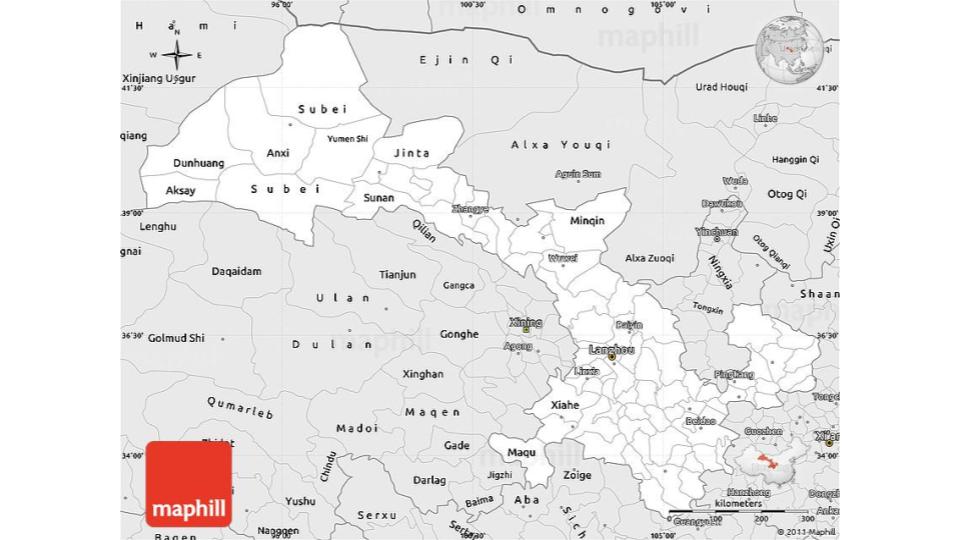
– From 2013-2018, we undertook an aggressive project to distribute hundreds of thousands of tracts and Bible portions in hundreds of previously unevangelized Gansu towns and villages.
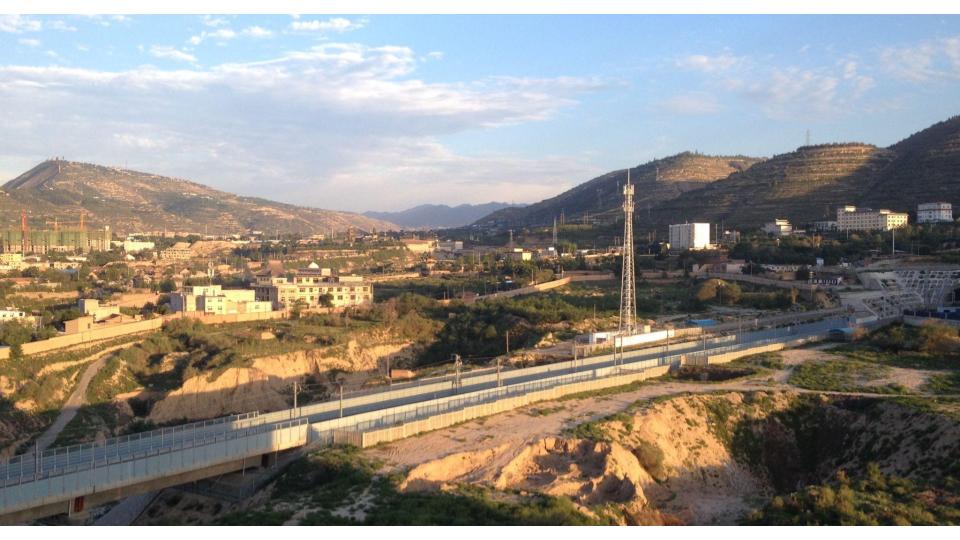
– In the Spring of 2018, I was caught in a sting operation by the Gansu PSB and arrested, interrogated, and deported for “possession” of illegal Christian literature (tracts, Bibles)
– During my interrogation, I committed myself to mobilizing more missionaries and more prayer and intercession for China than ever before.
No Coincidence
I don’t believe it’s a coincidence that my home state of Oklahoma and my adopted home of Gansu just “happen” to be friends, nor that the Lord calling us to live and serve in Gansu is not in some way an answer to the prayers of previous generations.
The Oklahoma-Gansu sister-state relationship was designed primarily for political, educational, and economic purposes, but in the spirit of the Apostle Paul and in honor of men like William Borden, I want to propose that Oklahoma Christians dopt Gansu for the purpose of prayer!
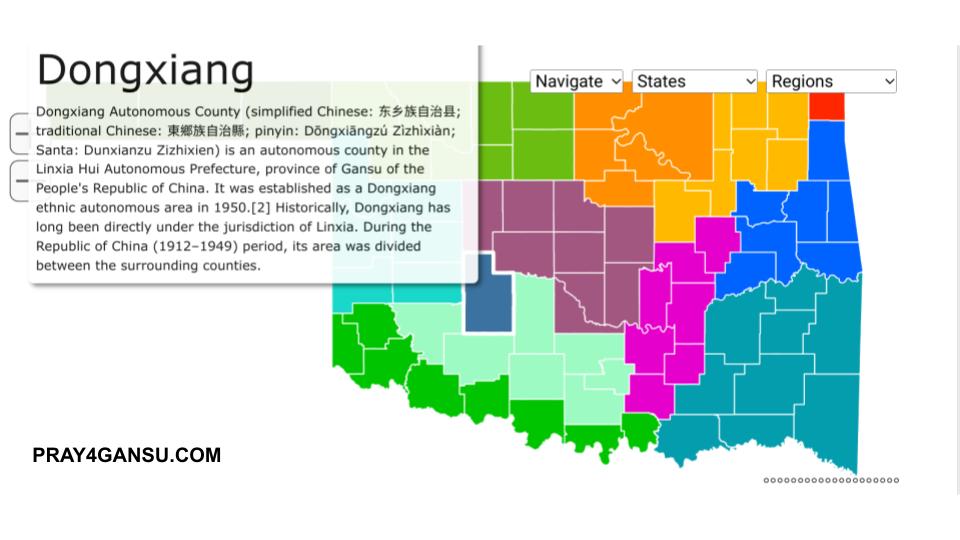
– We’ve put together a little website, Pray4Gansu.com, where I have matched up each county in Oklahoma with a Gansu county. There you can learn more about praying, giving, and even going to Gansu (some day).
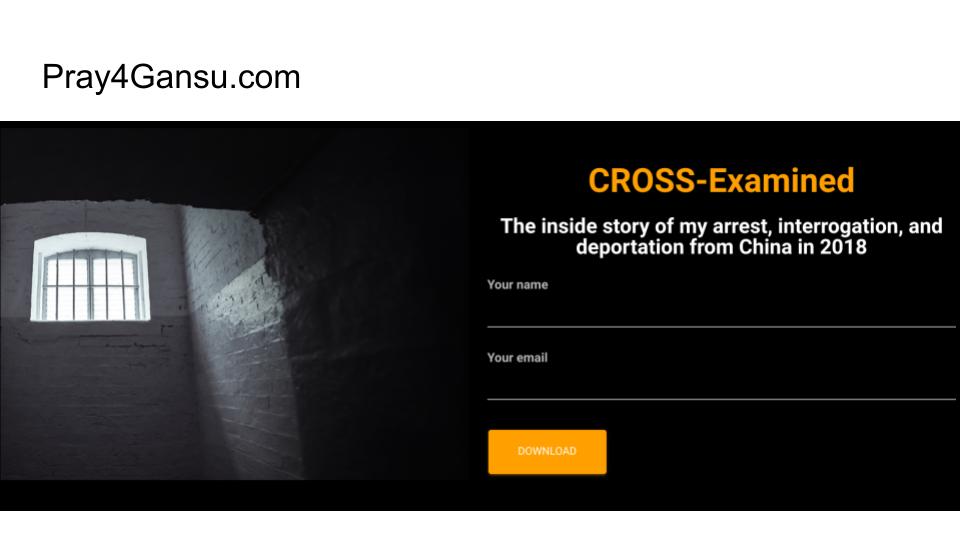
– you can also download my story on the website
Let’s pray that God would raise up more Pauls and Bordens, young and old, and (dare I say) the future generations of our children and grandchildren, to go and disciple Gansu’s millions!
And may we never forget the life and testimony of William Borden, who still speaks to us from the grave. No reserves. No retreats. No regrets.
